A look at Sittwe, Myanmar, in the aftermath of violence against Rohingya Muslims
Of all the challenges that Myanmar’s Nobel Laureate Aung San Suu Kyi has stared down in her life, the one she faces in 2014 may be the one she fails. She seemingly willed her country to democracy, but as a freed opposition politician she has so far been unable—or, her critics say, unwilling—to help the most vulnerable members of Myanmar society, the Rohingya minority.
A year and a half ago, an outbreak of violence between Buddhists and Rohingya Muslims in Sittwe, Myanmar, started a struggle that drove nearly 150,000 Rohingya from their homes and into poorly run Internally Displaced Person (IDP) camps. Photographer Andrew Stanbridge made multiple trips to Sittwe amidst the continuing violence to document the Rohingya’s problematic situation and uncertain future in Myanmar.
In the Muslim neighborhood of Aung Mingalar, security forces and barricades block off roads, preventing Rohingya from taking part in normal Sittwe society, which leaves them with little sources of food or work. Worse are the conditions inside the dusty camps, where those lucky enough to have the official aid buildings live 10 families to each long house. Those that are still waiting for shelter from the government are left to create makeshift tent cities out of whatever they can salvage, whether it be empty food bags from aid groups or dried rice stalks. Temperatures can vary drastically, from searing daytime heat to cold nights and monsoon rains. Access to clean water and food is limited and although toilets are some of the first things built, raw sewage still moves through open waterways. There are frequent disagreements between the police—largely members of the Burmese ethnic majority—and the Rohingya IDPs. These confrontations sometimes turn violent.
There are other oppressed minorities in Myanmar—the Shan, the Kachin, the Karen—but the Rohingya are not even recognized as a legitimate ethnic group in Myanmar, nor are they given citizenship rights. They have no voice. The question for 2014 is: Will Aung San Suu Kyi lend them hers? —Pauline Eiferman
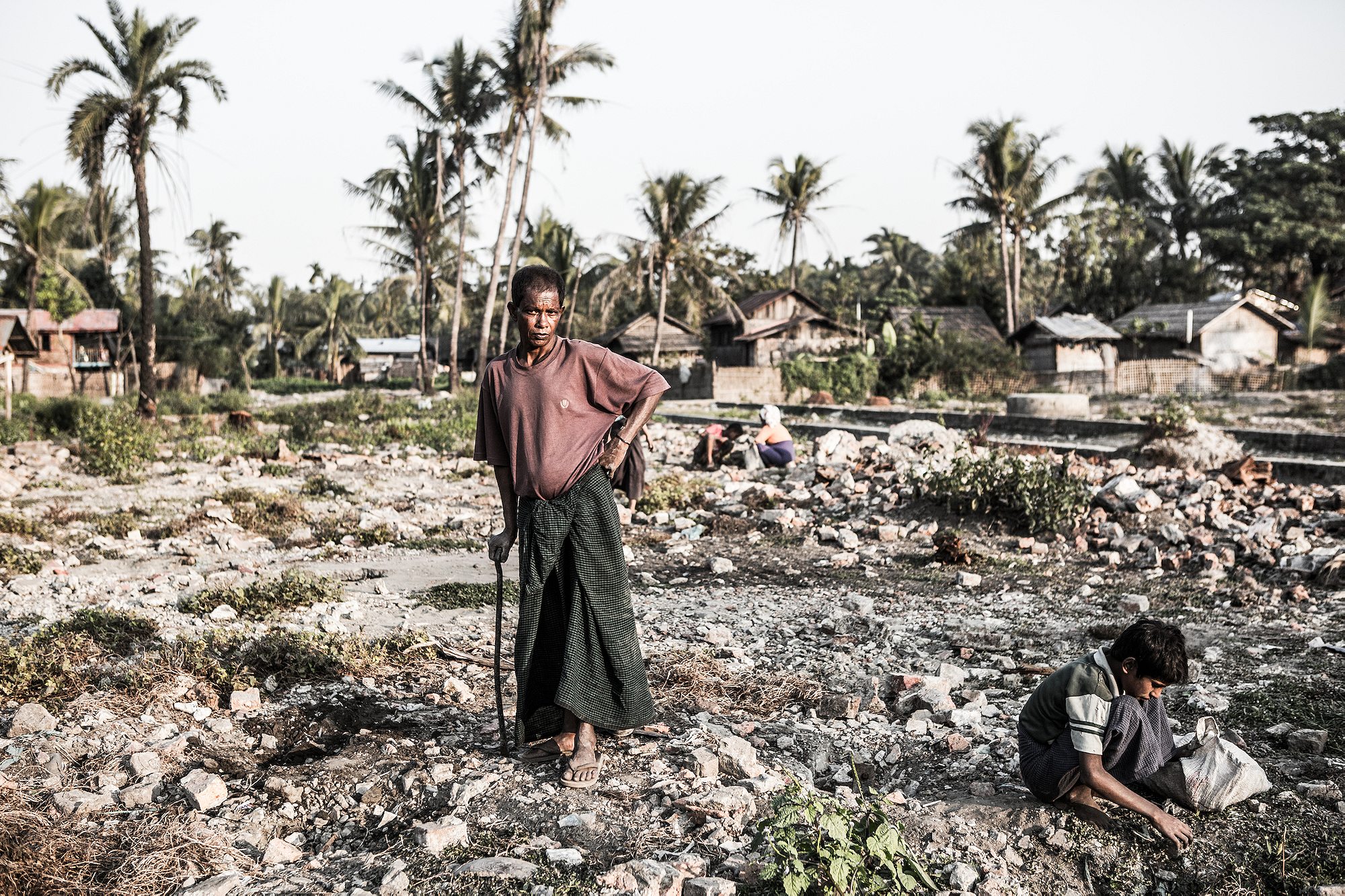
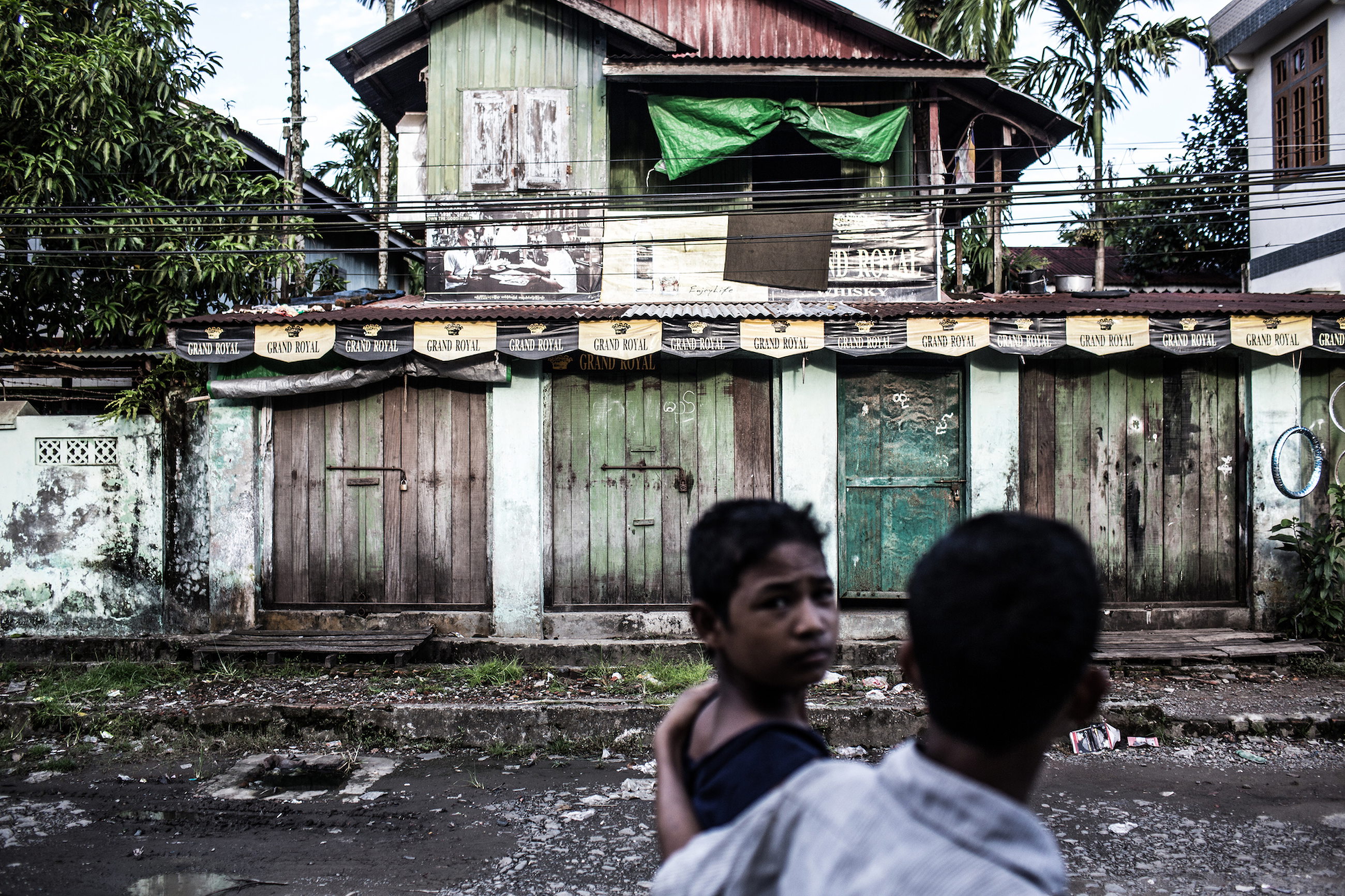
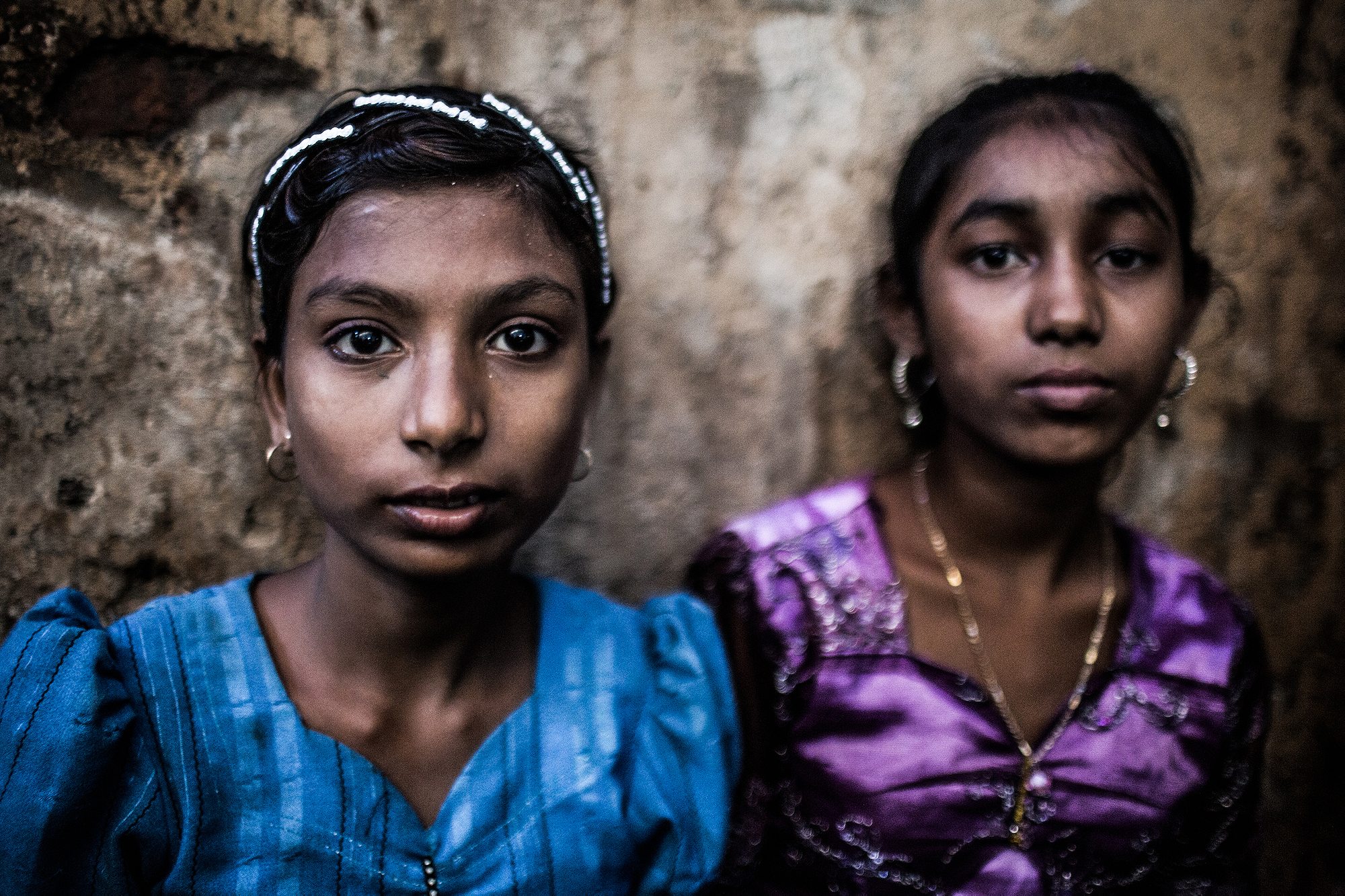
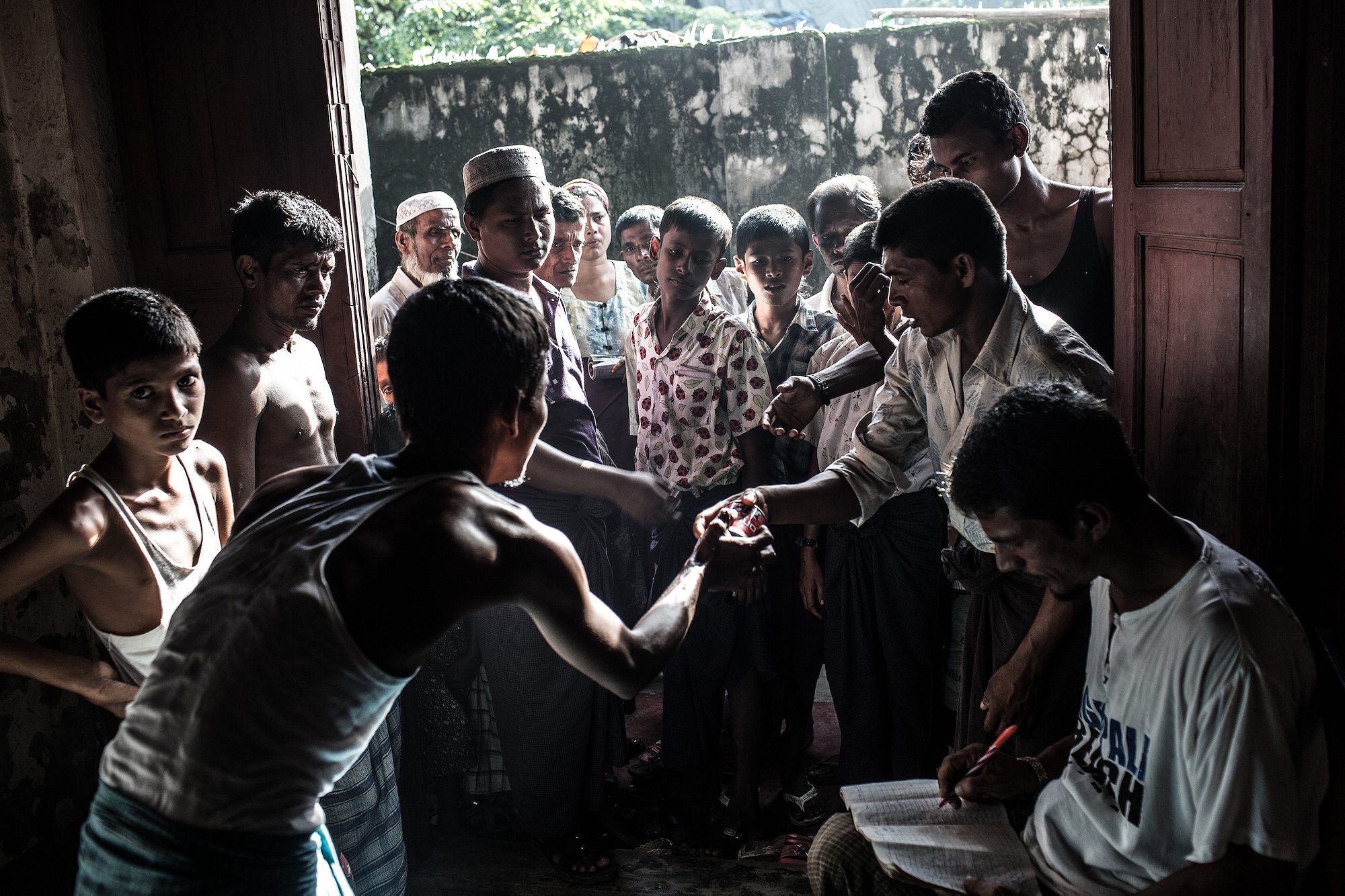
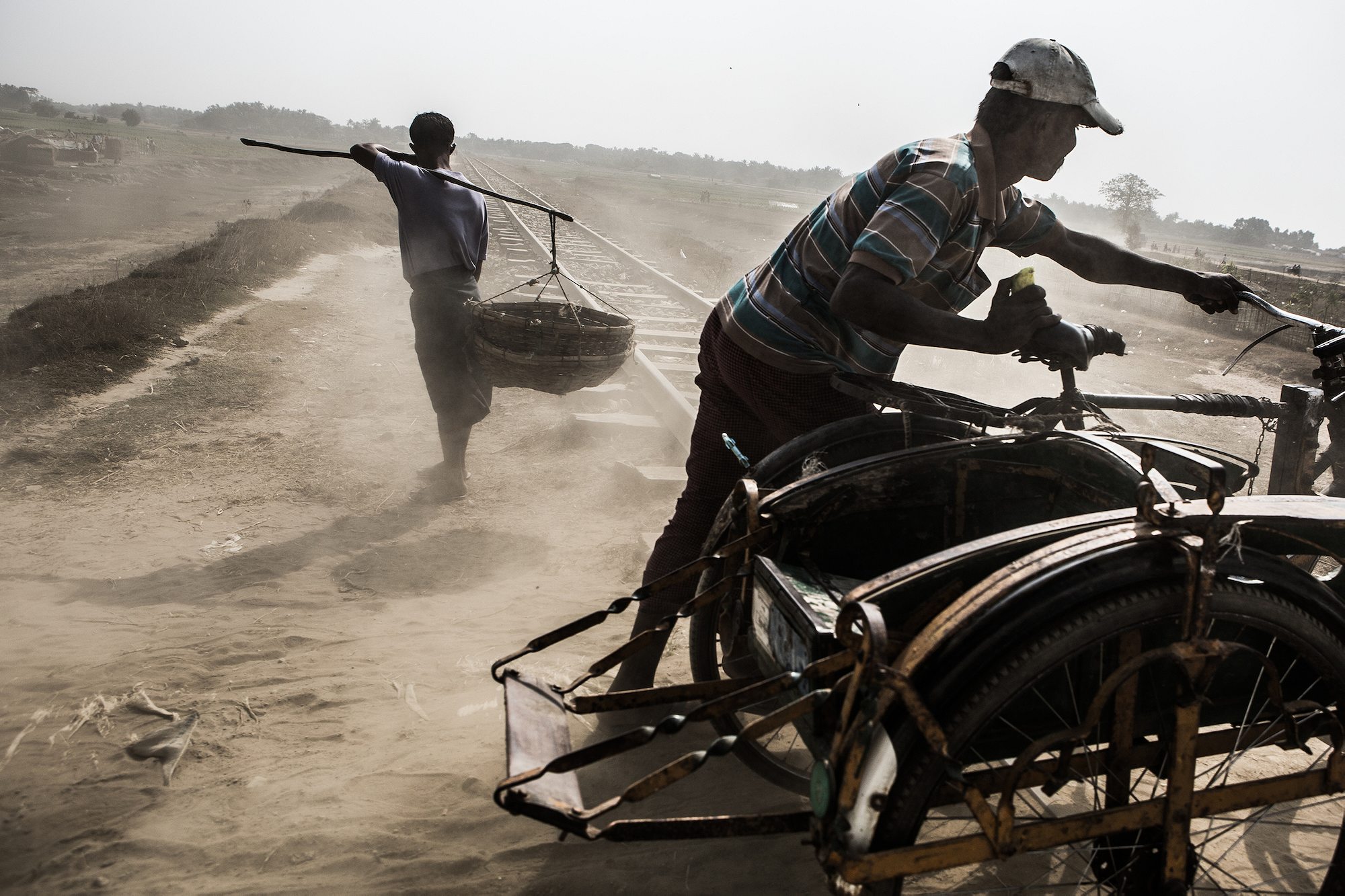
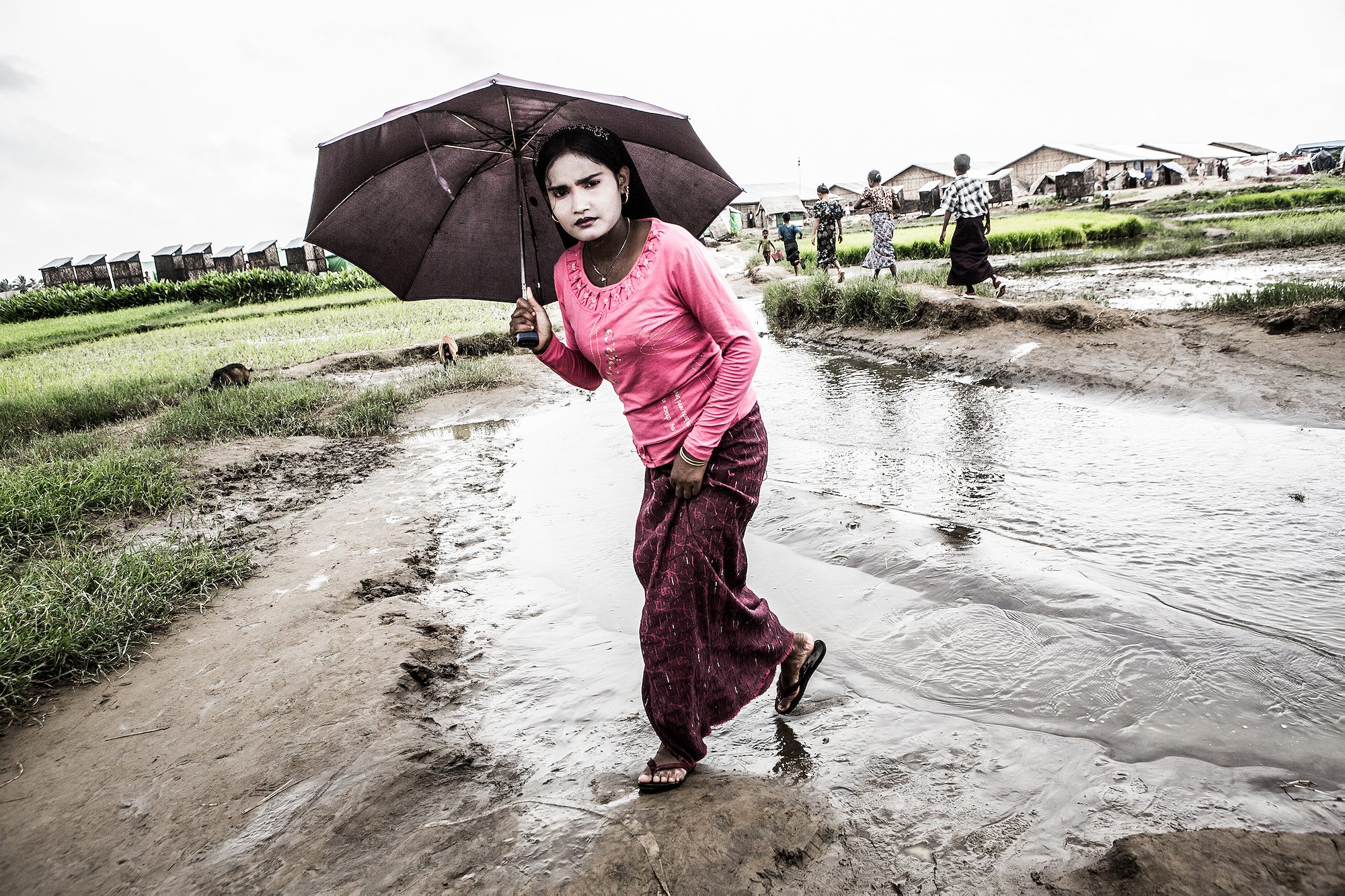
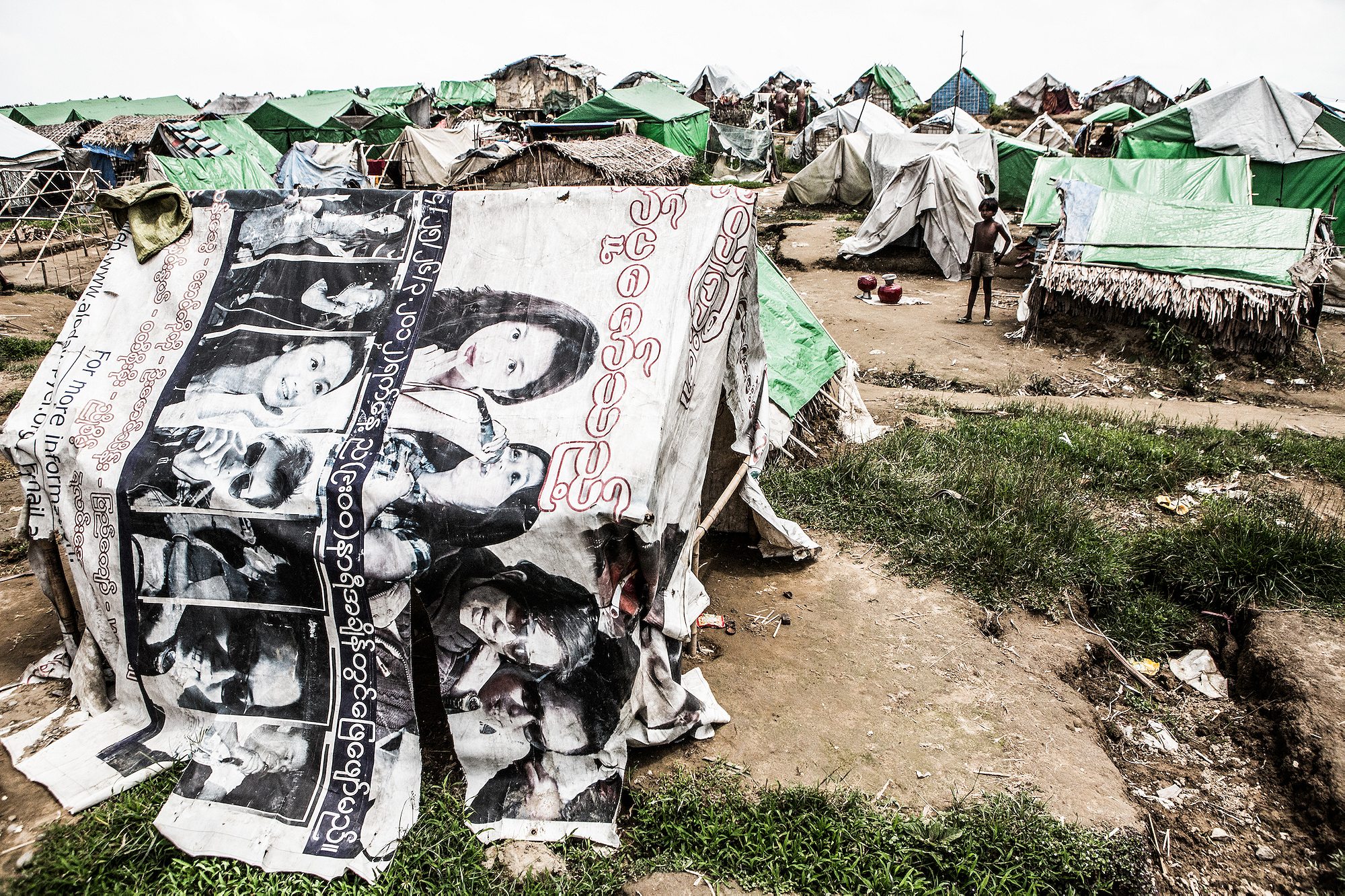
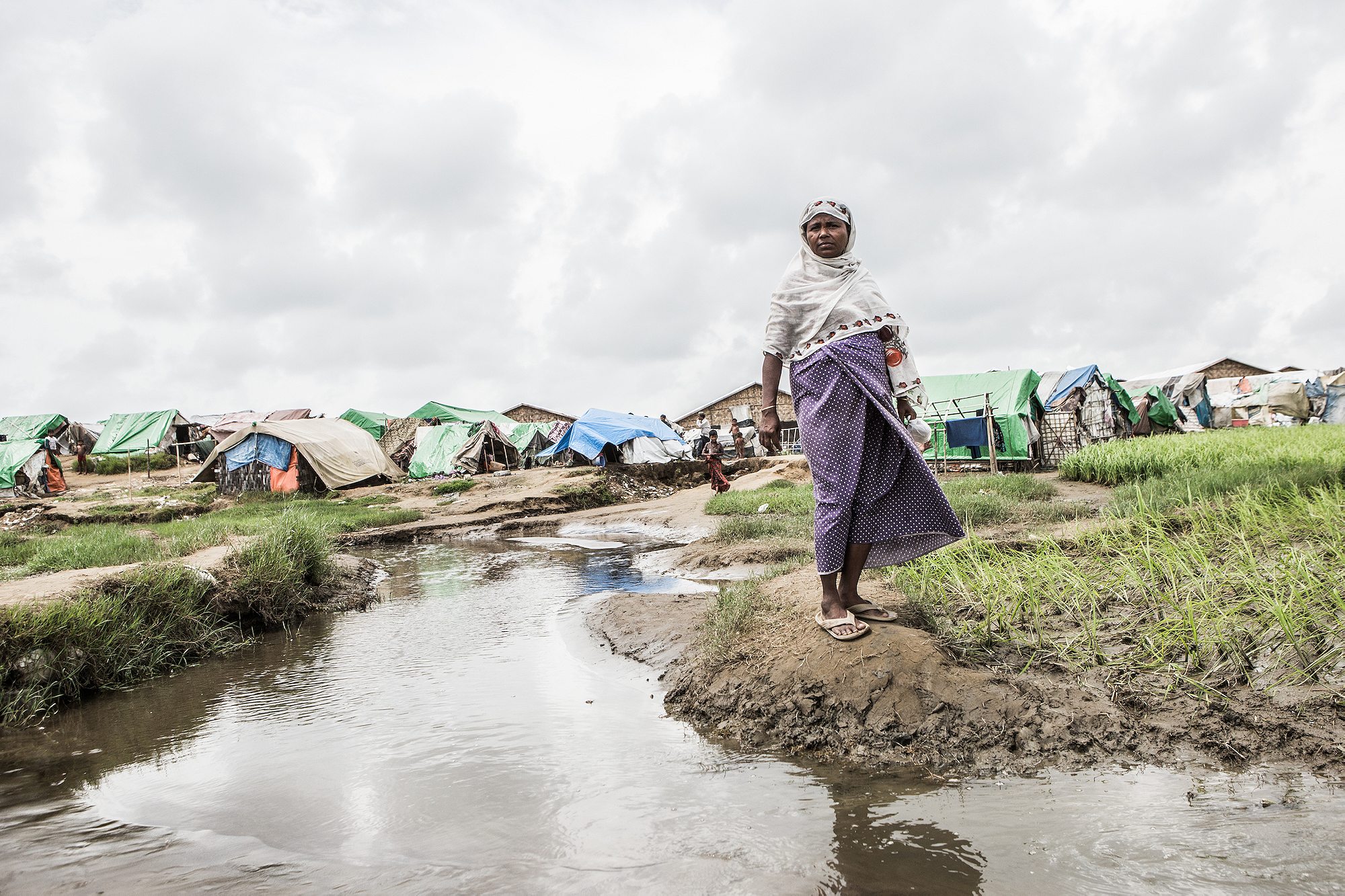
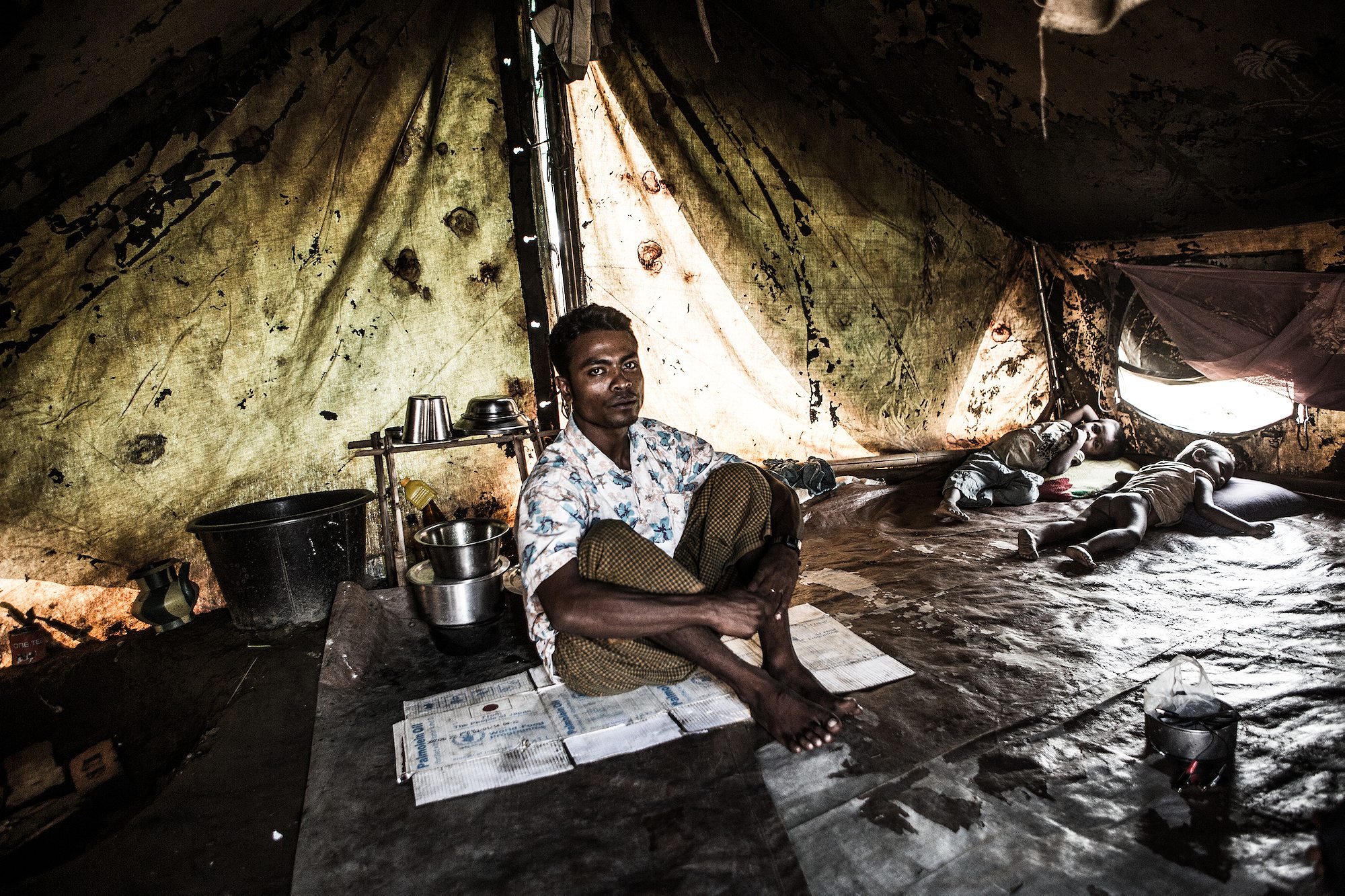
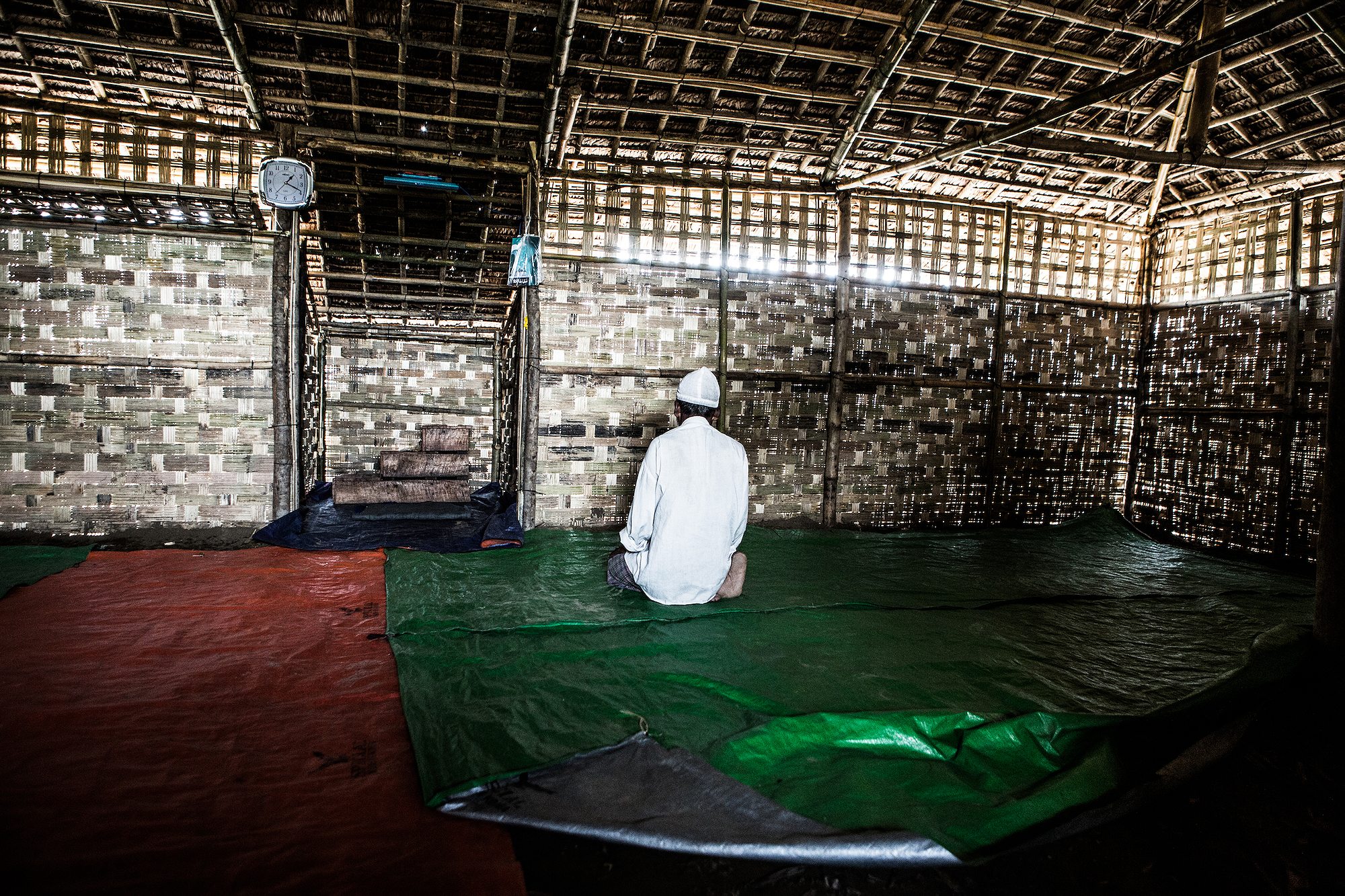
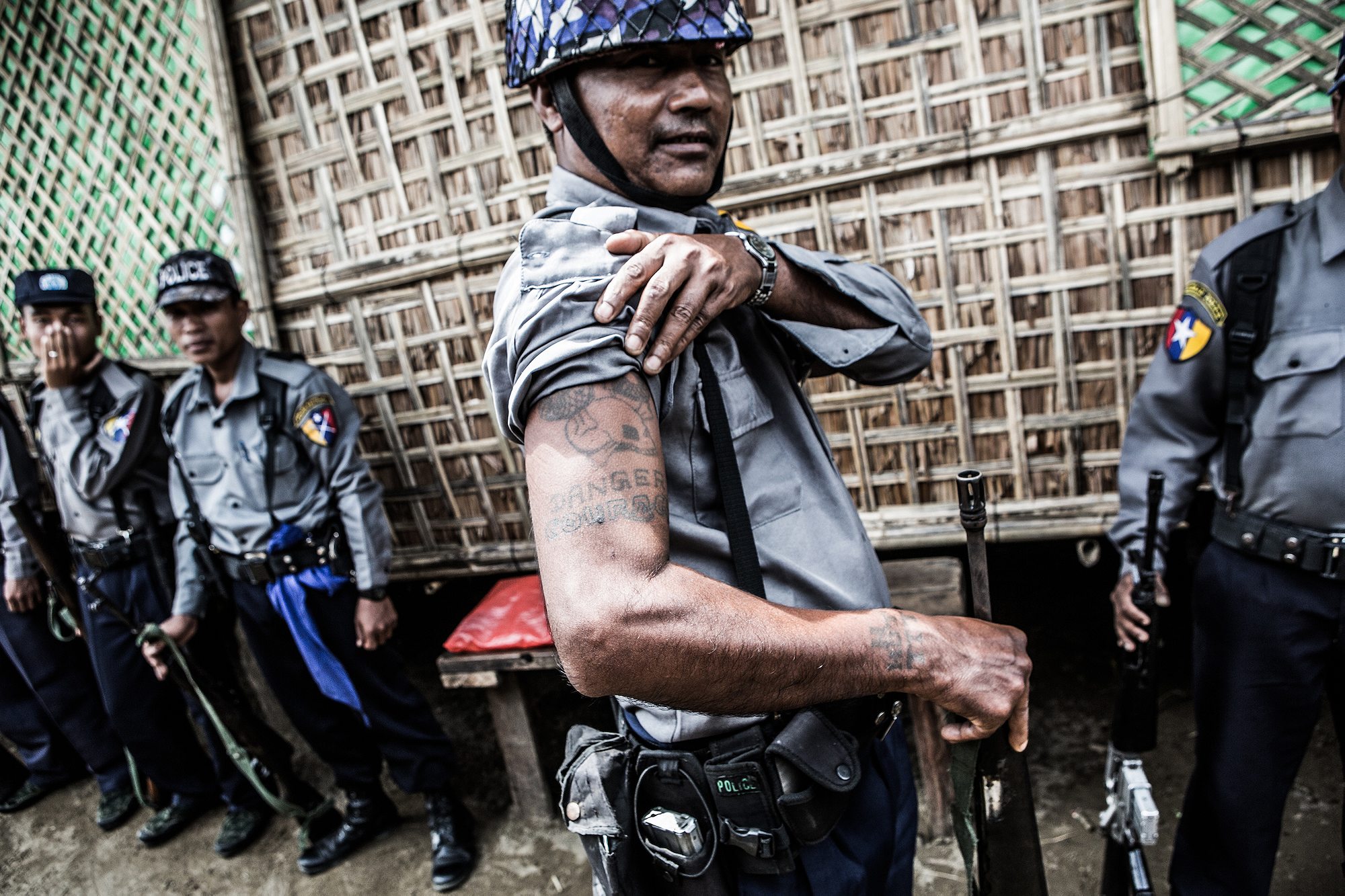
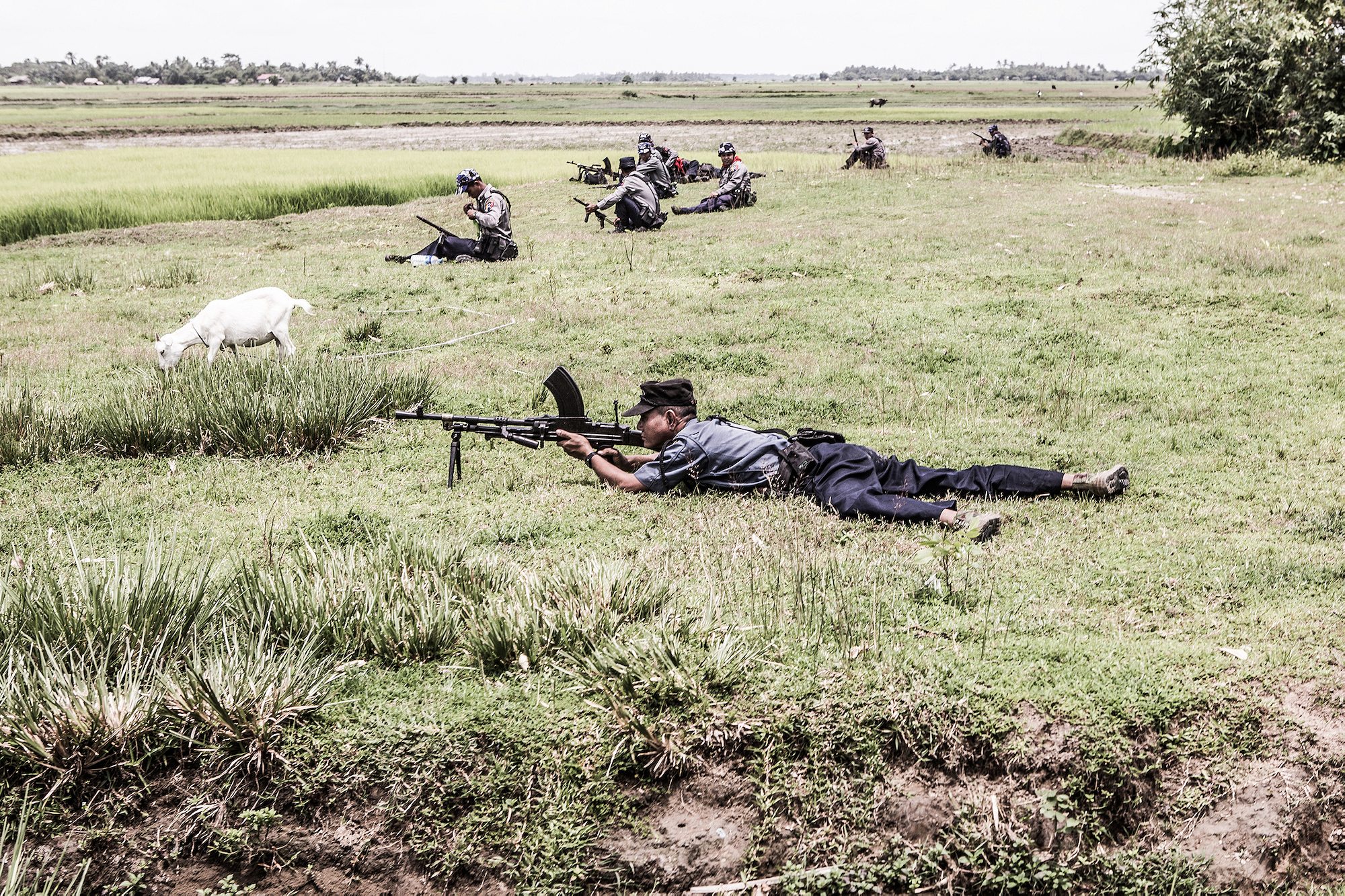
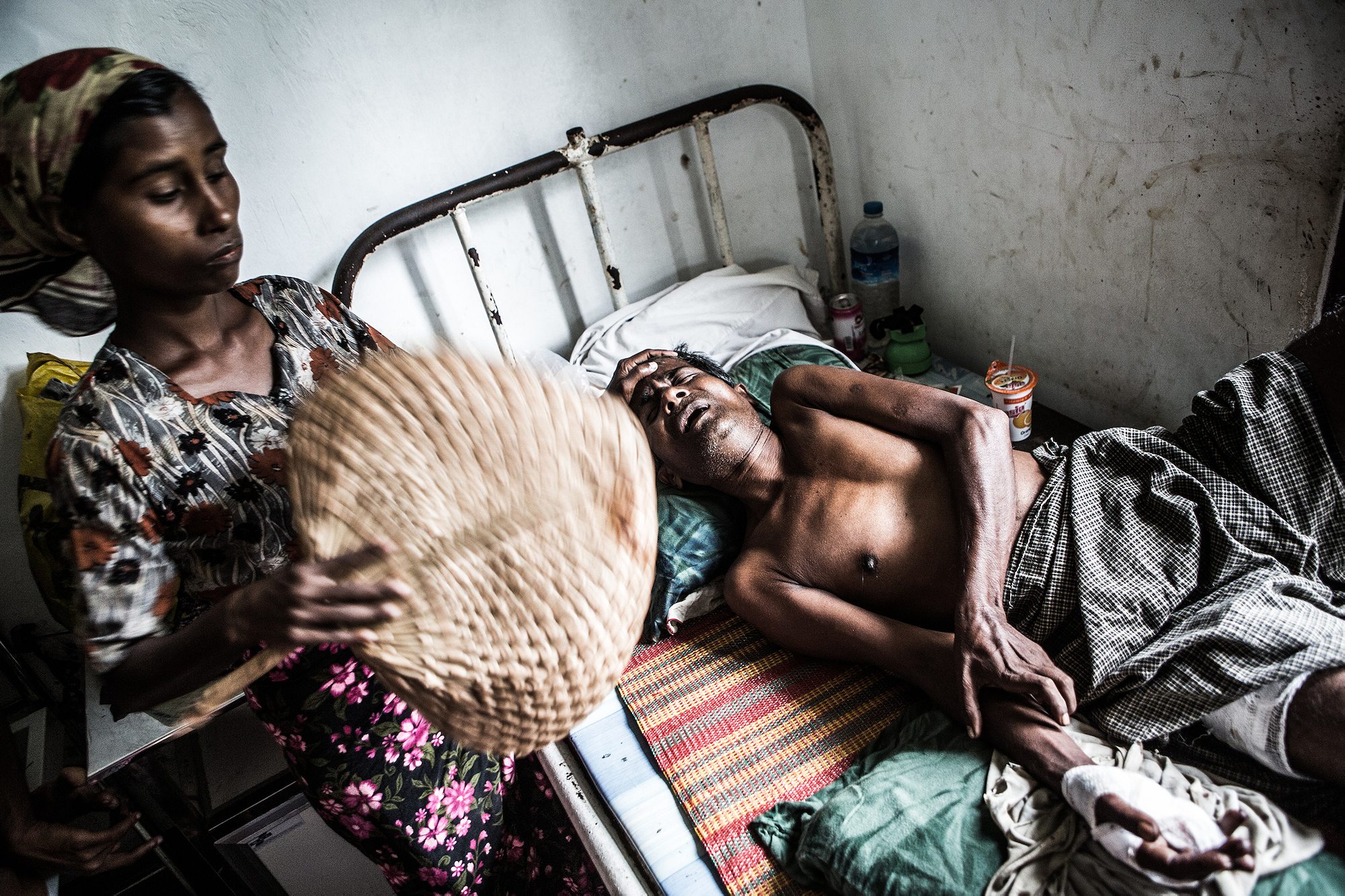
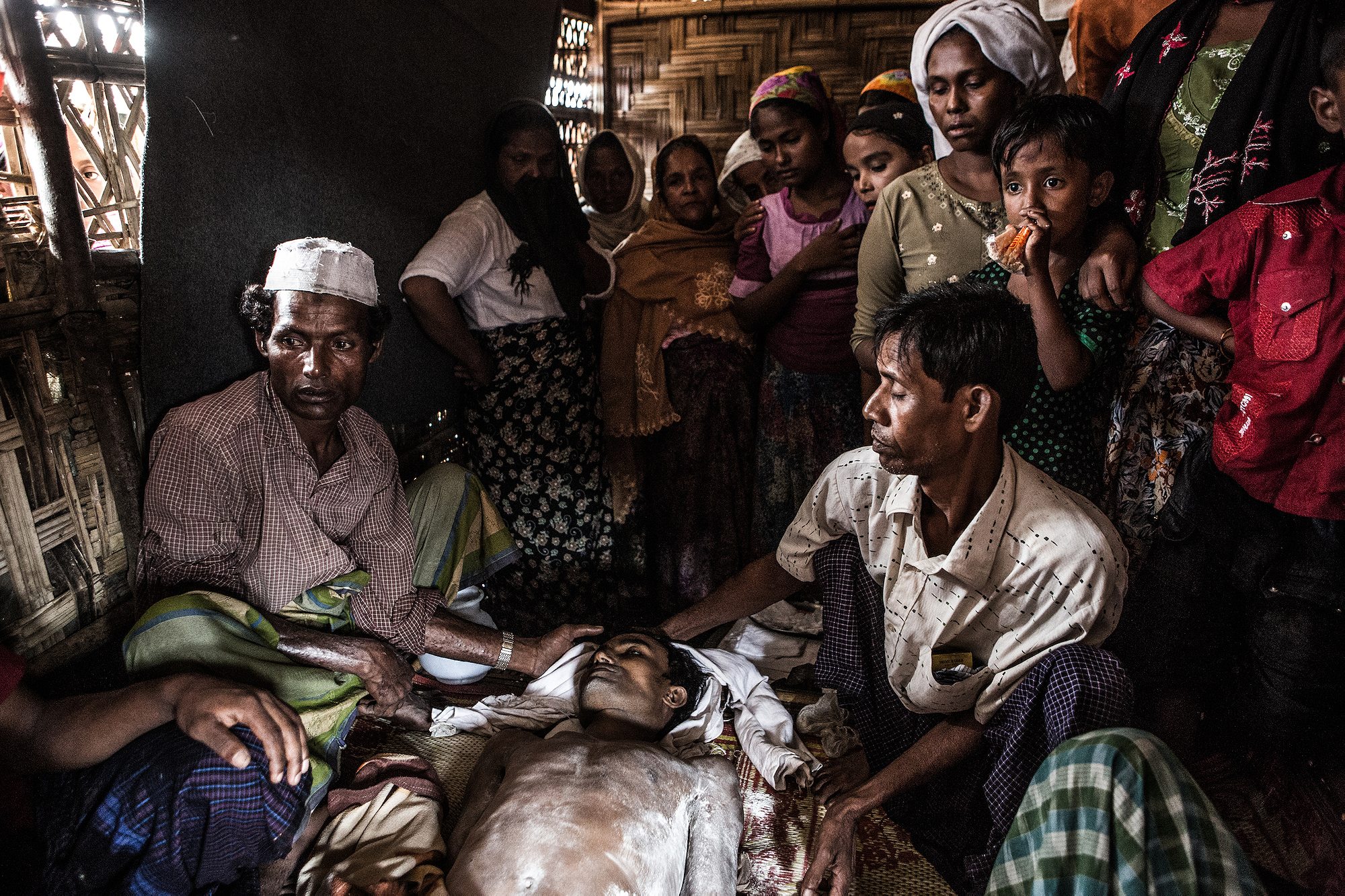
[Top image: A burned Rohingya mosque in the town of Sittwe, Myanmar.]